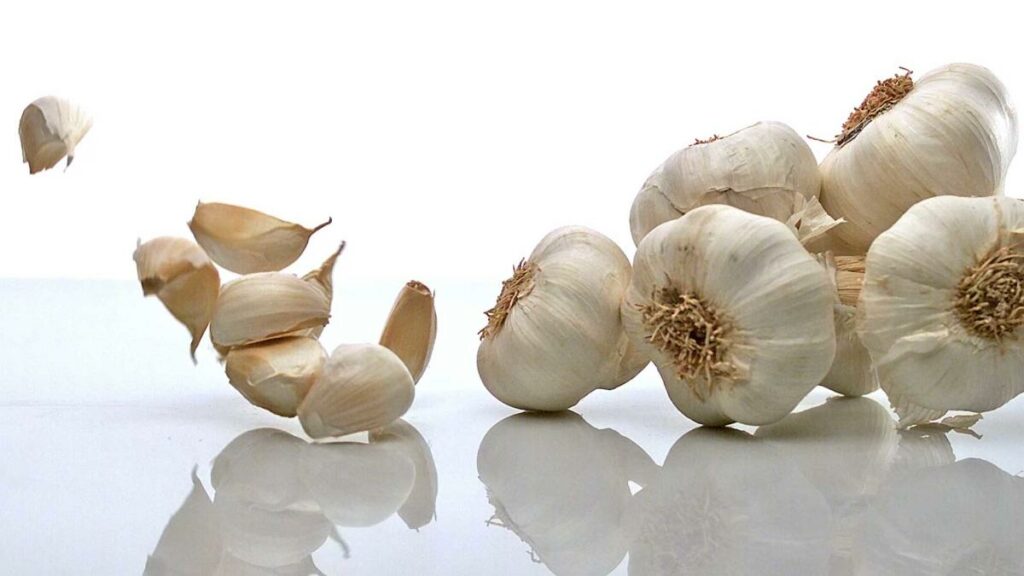Garlic, a cornerstone of myriad cuisines worldwide, not only elevates the flavor profile of dishes but also comes packed with health benefits. Storing garlic properly is crucial to maintaining its flavor, nutritional benefits, and longevity. This guide will walk you through the best practices for storing garlic, ensuring you can enjoy its full potential in your cooking.
Understanding Garlic
Before diving into storage methods, it’s essential to understand the different types of garlic. The two main categories are softneck garlic and hardneck garlic. Softneck varieties are often found in supermarkets and have a milder flavor, while hardneck types are typically more robust in flavor and are found at farmers’ markets or specialty stores.
Ideal Conditions for Storing Garlic
Garlic thrives in cool, dry places with plenty of ventilation. The optimal storage temperature is around 60°F to 65°F (15°C to 18°C) with low humidity. High moisture levels can lead to mold growth or cause the garlic to sprout prematurely.
How to Store Garlic Whole
Whole garlic bulbs can last for several months when stored under ideal conditions. Follow these tips for storing whole garlic:
Ventilation
Store garlic in a mesh bag, wire basket, or any container that allows for ample air circulation. Avoid plastic bags or any airtight containers as they can retain moisture and encourage mold growth.
Darkness
Garlic should be kept in the dark to prevent sprouting. Exposure to light can trigger the growth of green shoots from the cloves, making them bitter.
Temperature and Humidity
As mentioned, store garlic in a cool, dry place away from direct sunlight. Avoid storing garlic in the refrigerator, as the cold and moisture can cause it to sprout.
Storing Peeled or Chopped Garlic
Once garlic is peeled or chopped, its shelf life decreases significantly. Here are ways to store peeled or chopped garlic:
Refrigeration
Store peeled cloves in a tightly sealed container in the refrigerator for up to a week. For chopped garlic, a little olive oil can be added to the container to keep it moist and extend its freshness for a couple of days.
Freezing
Freezing is an excellent option for long-term storage of peeled or chopped garlic. Freeze them on a baking sheet before transferring to a freezer-safe container to prevent them from clumping together. Frozen garlic can last up to six months.
How to Store Garlic Paste
Garlic paste is a convenient way to add flavor to dishes but requires careful storage. Store garlic paste in an airtight container in the refrigerator for up to 10 days. You can also freeze garlic paste in ice cube trays, then transfer the frozen cubes to a freezer bag for easy use in cooking.
Storing Garlic in Oil
Storing garlic in oil requires caution due to the risk of botulism, a potentially fatal illness caused by bacteria thriving in anaerobic (oxygen-free) environments. To safely store garlic in oil:
Refrigeration
Keep the garlic-oil mixture in the refrigerator and use it within a week.
Acidification
Adding acid, such as vinegar or lemon juice, to the garlic-oil mixture can reduce the risk of botulism. Consult safe recipes and guidelines when using this method.
Long-Term Storage Options
For those interested in preserving garlic for longer periods:
Pickling:
Garlic can be pickled in vinegar, which allows it to be stored for several months in the refrigerator.
Drying:
Garlic cloves can be dried and then ground into garlic powder for a shelf-stable seasoning option.
FAQs
Can I store garlic in the freezer?
Yes, both whole unpeeled bulbs and individual cloves can be frozen, though they may become a bit mushy once thawed. They’re still great for cooking, though!
How can I tell if garlic has gone bad?
Spoiled garlic may become soft, discolored, or moldy. If it has an off smell or appearance, it’s best to discard it.
Is it safe to store garlic in oil at room temperature?
No, storing garlic in oil at room temperature can promote the growth of Clostridium botulinum bacteria, which causes botulism. Always refrigerate garlic stored in oil and use within a week.
Can I store garlic with other vegetables?
Garlic can be stored with other vegetables that require similar storage conditions. However, keep in mind that garlic can absorb strong odors and vice versa, which might affect its flavor and that of the vegetables.
How long can you store garlic?
Whole garlic bulbs can last several months under ideal conditions. Peeled or chopped garlic should be used within a week if refrigerated, or up to six months if frozen.
Why does my garlic sprout so quickly?
Garlic tends to sprout when exposed to warmth and light. To prevent sprouting, store garlic in a cool, dark place and ensure proper ventilation.
What should I do with sprouted garlic?
Sprouted garlic is still safe to eat, although it may have a slightly bitter taste. You can also plant the sprouted cloves to grow your own garlic.
In conclusion
proper storage of garlic can extend its shelf life and preserve its flavor and nutritional benefits. Whether you’re storing whole bulbs, peeled cloves, or garlic paste, following these guidelines will ensure you always have fresh garlic on hand for your cooking needs. Garlic’s versatility and health benefits make it a valuable addition to any kitchen, and proper storage techniques will help you make the most of this aromatic ingredient.
- Upper Face Anti Wrinkle Treatment Near Redhill, Surrey - January 5, 2025
- Xela Rederm Skin Booster Treatments Near Ripley, Surrey - January 4, 2025
- Traptox Aka Trapezius Botox Treatment Near Chelsham, Surrey - January 3, 2025

